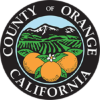It’s like waking up on the wrong side of life’s bed. One day, you’re sailing smoothly, and the next, you’re in the throes of alcohol withdrawal symptoms. These symptoms are not just a mere inconvenience; they’re a glaring billboard that reads, “Hey, your body is trying to tell you something!”
Now, let’s dive a little deeper. Alcohol withdrawals are no joke. It means your body has begun to need the chemicals that come from drinking. And as you might have guessed, if you are experiencing alcohol withdrawals, an addiction is likely at play. You see, alcohol has this charming way of slowing down brain activity.
Alcohol Withdrawal Symptoms
So maybe you are still wondering, are they withdrawals I am experiencing when I haven’t had a drink in a day or so? Here are some of the ones you might expect:
- Shakes and shivers
- Sweating
- Anxiety
- Insomnia
- Headaches

The Neurotransmitter Issue
At the heart of this drama are two neurotransmitters: GABA and Glutamate. Think of GABA as the cool, calm, collected one. Alcohol boosts GABA’s inhibitory effects on the brain, leading to relaxation and decreased anxiety. On the flip side, Glutamate is an excitable neurotransmitter. And it is suppressed by alcohol, keeping the brain’s excitability in check.
When alcohol leaves your body, GABA’s calming influence wanes. While returns—increasing brain activity and excitability. It’s like switching from a soothing lullaby to heavy metal at full volume. This imbalance leads to the most dangerous alcohol withdrawal symptoms: tremors, anxiety, and seizures.
Alcohol Withdrawal Symptoms and the Autonomic Nervous System
The autonomic nervous system takes care of our involuntary actions. Chronic alcohol use has been suppresses its activity. In withdrawal, this suppression lifts, and the system goes into overdrive.
With this you will find increased heart rate, blood pressure, and body temperature. These symptoms, combined with increased breathing rates, bring the most frightening symptoms of alcohol withdrawals.
A Recipe for Discomfort
Let’s not forget the liver. Having metabolized alcohol for so long, the liver suddenly finds itself in a state of confusion. The liver’s enzymes, which had adjusted to a life of processing alcohol, now have to recalibrate. This process isn’t instantaneous, contributing to the prolonged effects of withdrawal.
As daunting as this journey sounds, it’s a path back to equilibrium. To a body functioning as it should, without the influence of alcohol. It’s a system that’s been knocked down but is slowly, determinedly getting back up.
Alcohol Detox: The First Step
If you are experiencing withdrawals, you should consider an alcohol detox with a professional detoxification center. An alcohol detox is like hitting the ‘reset’ button. It’s your body’s way of saying, “Let’s clear out the poisons and start fresh.” Every person’s journey is different, but a typical alcohol detox may look something like this. (Please remember, quitting alcohol without professional assistance can be dangerous. Always consult a detox center or a doctor for the best route to alcohol detox.)

Detoxification Timeline
- First 6-12 Hours: Mild symptoms kick in.
- 12-24 Hours: Things get a bit more real. You might start seeing things that aren’t there.
- 24-48 Hours: Hold on tight, this is where the severe symptoms can show up. Think hallucinations or potential seizures.
- 48-72 Hours: Welcome to the peak. Things will get better from here, but you have to get here first.
- After 72 Hours: The storm starts calming. You’re not out of the woods yet, but you’re on your way.
Statistics: A Glimpse Into the Reality
Did you know that about 50% of people with an alcohol dependency experience withdrawal symptoms when they stop drinking? Or that only 3-5% of these individuals will experience the most severe form, known as delirium tremens? These numbers aren’t just statistics; they’re stories of real people on a real journey.
Navigating through alcohol withdrawal symptoms is a bit like being in a small boat in the middle of a stormy sea. It’s about riding the waves, knowing that calm waters are ahead. It’s a journey of introspection, where you come face to face with the strongest version of yourself.
Consider Detox With Saddleback Recovery
If you’re navigating the choppy waters of alcohol withdrawals, remember, you don’t have to sail this journey alone. Saddleback Recovery, a leading alcohol and drug detox center in Orange County, CA, can be your safe haven.
Our compassionate team, expert care, and supportive environment are here to guide you towards a brighter, sober future.
Don’t let another day pass in the shadow of addiction or in the danger of alcohol withdrawal symptoms. Call Saddleback Recovery at (877) 843-5724 and embark on the path to recovery today.







